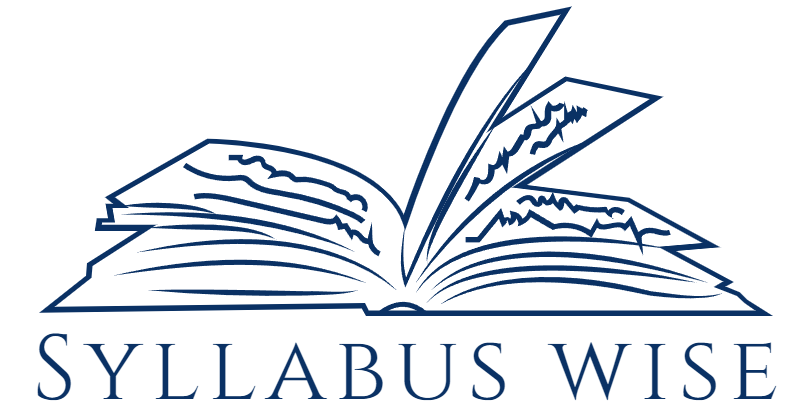Table of Contents
The detailed CUET Political Science syllabus is attached here with a downloadable PDF file. Start your journey to enter the prestigious Universities of India.
The Common University Entrance Test(CUET) is an important test conducted by the National Testing agency (NTA) for entering prestigious universities to become a Graduate or a Postgraduate. Almost 13.6 lakh students each year applied CUET for opportunities in 249 Universities including 45 esteemed Central universities.
CUET Political Science Syllabus 2025
The CUET exam for the coming 2025 session syllabus will be the same and the pattern of questions as well as it was in 2024.
Let’s go to the CUET political science syllabus.
Western Political Philosophy: Plato, Aristotle, Machiavelli, Hobbes, Locke, Rousseau, J.S. Mill, Karl Marx, John Rawls.
Indian Political Thought: Ram Mohan Roy, Gandhi, Ambedkar, Savarkar, Kautilya.
Political theory: Concepts of Liberty, Equality, Justice, Sovereignty, Citizenship and Gender, Democracy Human Rights, State, Contemporary Issues, Feminism Ideology.
International Relations: Realism and liberalism, Cold War politics, NAM, SAARC, UNO, ASEAN, and EU India’s foreign policy, particularly with China, Pakistan, and the USA.
Indian Government and Politics: Preamble, Making of the Constituent Assembly, Constitutional Provisions, Parliament, Cabinet, Prime Minister, President, Fundamental Rights, Fundamental Duties, Directive Principles of State Policy, Amendments, Governor, State Government, Federalism Political Parties (National and Regional), Elections, Local Government, Judiciary, Governance.
Comparative Government and Politics: Approaches/ Models, Political Culture, Political Parties, Electoral Systems, Types of Regimes, Public Policies in India: Models, Processes, Types.
General issues of contemporary relevance: Global Justice, Nationalism, Climate Change.
You can also refer to the UGC NET Political science syllabus for those who are preparing for Postgraduation and making a career in it.
CUET Pol Science Syllabus 2025
Explained below are the unit-wise topics under the CUET Political Science syllabus:
Politics in India Since Independence:
The era of One-Party Dominance
- First three general elections
- Nature of Congress dominance at the national level, uneven dominance at the state level
- Coalitional nature of Congress
- Major opposition parties
Nation-Building and Its Problems
- Nehru’s approach to nation-building, in terms of Legacy of partition, the challenge of ‘refugee’ resettlement, the Kashmir problem
- Organization and reorganization of states
- Political conflicts over language.
- India’s External Relations
Politics of Planned Development
- Five-year plans
- Expansion of the state sector
- The rise of new economic interests
- Famine and suspension of five-year plans
- Green revolution and its political fallout
Challenge to and Restoration of Congress System
- Political succession after Nehru
- Non-Congress and Electoral Upset of 1967
- Congress split and reconstitution
- Congress’ victory in 1971
- Politics of ‘garibi hatao’
Crisis of the Constitutional Order
- Search for ‘committed’ bureaucracy and judiciary.
- Navnirman movement in Gujarat
- Bihar movement
- Emergency: context, constitutional and extra-constitutional dimensions, resistance to emergency.
- 977 elections and the formation of the Janata Party
- Rise of civil liberties organizations.
Regional Aspirations and Conflicts
- Rise of regional parties
- Punjab crisis and anti-sikh riots of 1984
- The Kashmir situation
- Challenges and responses in the North East
Rise of New Social Movements
- Farmers’ movements
- Women’s movement
- Environment
- Development-affected people’s movements
- Implementation of Mandal Commission report and its aftermath
Democratic Upsurge and Coalition Politics
- Participatory upsurge in the 1990s
- Rise of the JD and the BJP
- The increasing role of regional parties and coalition politics
- UF and NDA governments
- Elections 2004 and UPA government.
Recent Issues and Challenges
- Challenges of and responses to globalization
- New economic policy and its opposition
- Rise of OBCs in North Indian politics
- Dalit politics in the electoral and non-electoral arena
- Challenge of communalism
- Ayodhya dispute
- Gujarat riots
Contemporary World Politics
Cold War Era in World Politics
- The emergence of two power blocs after the Second World War
- Arenas of the Cold War
- Challenges to Bipolarity
- Non-Aligned Movement
- The quest for a new international economic order
- India and the Cold War
Disintegration of the ‘Second World’ and the Collapse of Bipolarity
- New entities in world politics: Russia, Balkan states, and, Central Asian states
- Introduction of democratic politics and capitalism in post-communist regimes
- India’s relations with Russia and other post-communist countries.
US Dominance in World Politics
- Growth of unilateralism: Afghanistan
- First Gulf War
- Response to 9/11 and the attack on Iraq
- Dominance and challenge to the US in economy and ideology
- India’s renegotiation of its relationship with the USA.
Alternative Centres of Economic and Political Power
- The rise of China as an economic power in post-Mao era
- Creation, and expansion of European Union, ASEAN.
- India’s Changing Relations with China
South Asia in the Post-Cold War Era
- Democratization and its reversals in Pakistan and Nepal
- Ethnic conflict in Sri Lanka
- Impact of economic globalization on the region
- Conflicts and efforts for peace in South Asia
- India’s relations with its neighbors.
International Organisations in a Unipolar World
- Restructuring and the future of the UN
- India’s position in the restructured UN
- Rise of new international actors
- New international economic organizations, NGOs.
- Accountability & democracy of new institutions of global governance?
Security in the Contemporary World
- Traditional concerns of security and politics of disarmament
- Non-traditional or human security: global poverty, health, and education.
- Issues of human rights and migration.
Environment and Natural Resources in Global Politics
- Environment movement and evolution of global environmental norms
- Conflicts over traditional and common property resources
- Rights of Indigenous people
- India’s stand-in global environmental debates
Globalization and Its Critics
- Economic, cultural, and political manifestations.
- Debates on the nature of consequences of globalization
- Anti-globalization movements
- India as an arena of globalization and struggles against it.
Best universities under CUET for B.A Political Science
- Hindu College, University of Delhi
- Jamia Millia Islamia
- Banaras Hindu University
- Jawaharlal Nehru University
- University of Allahabad
- Guru Ghasidas Vishwavidyalaya
- Amity University, Noida
- Aligarh Muslim University (AMU)
- Dr. B. R. Ambedkar University, Delhi (AUD)
- Ramjas College, Delhi
- Miranda House, New Delhi.


Comments are closed.